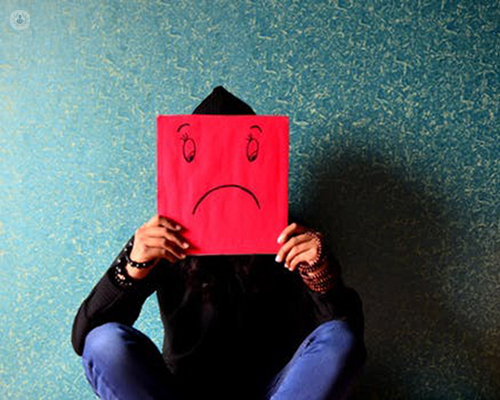8 tips for overcoming Blue Monday and to make the most of January
Written by:January can be a tough time for even the most cheery individual, with January blues a present feeling in many of us. Today, Monday 15th January is known as Blue Monday, the most depressing day of the year calculated because of the end of festivities, the cold and damp weather, possible debts, and failed new year’s resolutions. With the help of leading consultant psychiatrist, Dr Adil Jawad, we identify eight ways you can make a positive change, and stop ‘the blues’ developing into depression.

What causes the January blues?
There are combination of factors which contribute January blues, for example, for a large section of people, it is a period after the Christmas and New Year festivities, shopping, meeting people and sharing gifts and then being back at work. The cold and damp weather, possible debts and failed New Year’s resolutions add misery at this time of year.
Dr Raghurami Reddy, former Professor at the Institute of Mental Health, India, stated that the gap between what people’s reality of ‘what is’ and their expectations of ‘what should be’ plays a major role in affecting their mental health, including mood. The larger the gap, the higher the risk of a person plummeting into feeling down or experiencing a full blown depression, therefore total moment to moment awareness of these internal mental processes is crucial in keeping yourself mentally stable. Having expectations is not bad in itself, but these should be accompanied by the awareness that these may not be met.
Are there any foods that can help improve January blues?
Some studies believe that high intakes of fruit, vegetables, fish, and whole grains may be associated with a reduced depression risk.
How can you recognise the difference between feeling down, and depression?
We all feel fed up, miserable or sad at times. These feelings don't usually last longer than a few days and they don't interfere too much with our lives. Sometimes there's a reason, sometimes not. We usually cope by talking to a friend but don't otherwise need any help.
However, in depression, the feelings don't lift after a few days and can carry on for weeks or months. These feelings are so bad that they interfere with one’s life. Depression is a common mental disorder. Globally, more than 300 million people of all ages suffer from depression.
The criteria for diagnosing depression requires that at least 7 out of the 10 of the following are necessary for diagnosing severe depression, and these symptoms should last for at least 2 weeks.
- Depressed mood
- Loss of interest and enjoyment
- Reduced energy/increased fatigability/ diminished Activity/Marked tiredness
- Decreased concentration and attention
- Low self esteem
- Ideas of guilt
- Hopelessness
- Ideas or acts of self-harm or suicide
- Disturbed sleep
- Diminished appetite
How is depression treated?
Depression can be treated in a number of ways. Depending on the symptoms, the severity of the depression, and the circumstances, self-help may be suggested, otherwise cognitive behavioural therapy (CBT) principles can be used, making sure you get more exercise (3 session per week for 45 minutes to one hour, for 10 to 12 weeks at least), talking treatments such as counselling or support groups, or antidepressant medication may be prescribed.
If you are concerned about depression in you or a loved one, make an appointment with a specialist who can provide you with right support.
What is your advice to avoid depression?
Don't keep it to yourself
If you've had some bad news, or a major upset, tell someone close to you and tell them how you feel. You may need to talk (and maybe cry) about it more than once. This is part of the mind's natural way of healing.
Do something
Get out of doors for some exercise, even if only for a walk. This will help you to keep physically fit, and will help you sleep. Even if you can't work, it's good to keep active. This could be housework, DIY (even as little as changing a light bulb), or any activity that is part of your normal routine.
Eat well
You may not feel like eating - but try to eat regularly. Depression can make you lose weight and run short of vitamins which will only make you feel worse. Fresh fruit and vegetables are particularly helpful.
Be wary of alcohol
Try not to drown your sorrows with a drink. Alcohol actually makes depression worse. It may make you feel better for a short while, but it doesn't last. Drinking can stop you dealing with important problems and from getting the right help. It's also bad for your physical health.
Be wary of cannabis
While cannabis can help you to relax, there is now evidence that regular use, particularly in teenagers, can bring on depression.
Get enough sleep
If you can't sleep, try not to worry about it. Settle down with some relaxing music or television while you're lying in bed. Your body will get a chance to rest and, with your mind occupied, you may feel less anxious and find it easier to get some sleep.
Tackle the cause
If you think you know what is behind your depression, it can help to write down the problem and then think of the things you could do to tackle it. Pick the best things to do and try them.
Keep hopeful
Remind yourself that many other people have had depression, it may be hard to believe, but you will eventually come out of it


